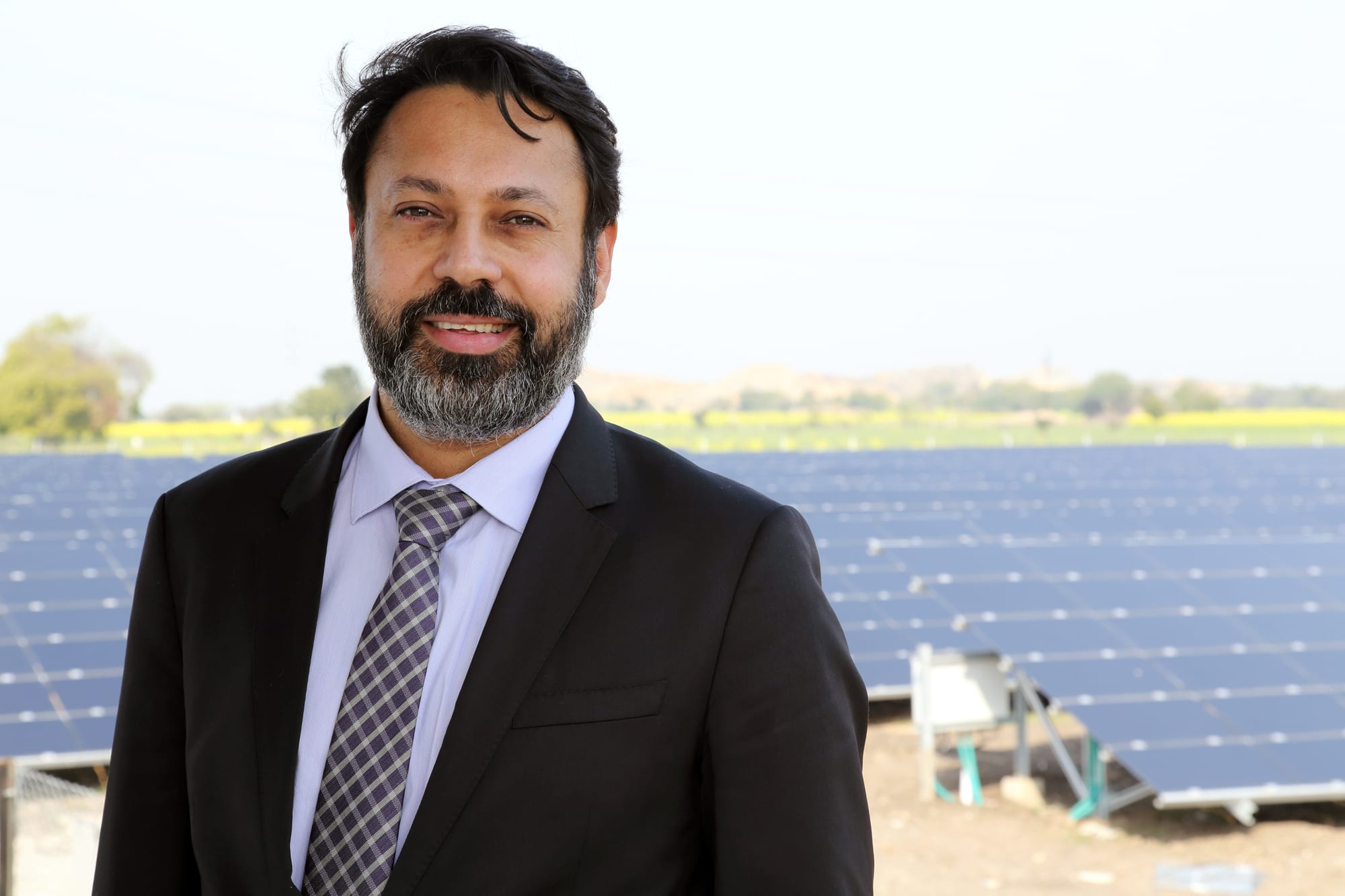
Power Global, now produces 1,000 megawatts of solar energy, with another thousand moving into production. One megawatt produces enough energy to power thirty villages.
Even a short conversation with Inderpreet Wadhwa leaves no doubt that he possesses the curiosity, intellect, and drive of a born entrepreneur. Especially interested in social impact, Wadhwa in 2008 founded Azure Power, an Indian solar company that seeks to be the lowest-cost power producer in the world.
Wadhwa, who grew up in Punjab, always dreamed of studying in America and working in Silicon Valley. After earning an undergraduate degree in electronics and communications engineering in 1994 in India, Wadhwa got his chance. He landed a product management job with Oracle and, later, a spot in the Evening & Weekend Berkeley MBA Program.
In 2005, Wadhwa moved to CRM provider Loyalty Lab, in part to flex his entrepreneurial muscles. “I knew if I wanted to start my own business and find investors, I’d need to show a track record of product development in a more capital-constrained environment than Oracle,” he says. “It was a real-world application of my Haas lessons.”
A few years later, Wadhwa traveled back to India to assist in a family member’s complex real estate litigation. At one point during that protracted stay, Wadhwa found himself seated next to a government official, when the talk turned to renewable energy.
“I had some academic knowledge of the topic, and it was enough to make me the expert in the room,” he says. The official invited him to make a presentation to other government officials. “At the end of it, they asked if I was going to build a solar company or go back to America.”
Throughout his early career, Wadhwa would often meet with fellow Indian expats in Silicon Valley to discuss what their contributions to their home country could be. “They were just dinner party conversations [though],” says Wadhwa. But given the opportunity to improve life in India, Wadhwa chose to return.
“I thought, ‘Someone’s going to do it. Why not me?'” says Wadhwa, who credits the rigorous analytical skills honed by his Haas experience as key to tackling the formidable challenge. Since developing India’s first private utility-scale solar project in 2009, Azure projects now produce 1,000 megawatts of solar energy, with another thousand moving into production. One megawatt produces enough energy to power thirty villages.
What’s more, the social impact of Azure is immense.
“We need land for our projects, so we develop partnerships with local landowners. That means they’re earning income on wasteland that was otherwise non-income producing,” says Wadhwa, who also hires locals to operate the projects. Those stable, well-paying jobs mean more money is available for spending on health and education in small communities near the solar projects, not to mention cheap, clean power for villages that may never have had it before.
What’s the secret to Wadhwa’s success? “You have to believe in your analysis and build out from there,” he says. “You need a plan–and make sure you have plans B, C, D, and E ready as well.”